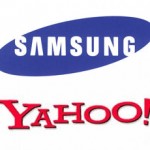 Mountain View, Calif., — Four years back, Google courageously embarked on a project to scan every printed book, defying the protests from Authors Guild and the Association of American Publishers — paving the way for Google books. Nevertheless, a settlement last October with the major players now makes it possible for Google to pay itself to build a proprietary technology infrastructure for a “Book Rights Registry.” Google is exploring to make it possible for users to read a far greater collection of books, including many still under copyright protection.
Mountain View, Calif., — Four years back, Google courageously embarked on a project to scan every printed book, defying the protests from Authors Guild and the Association of American Publishers — paving the way for Google books. Nevertheless, a settlement last October with the major players now makes it possible for Google to pay itself to build a proprietary technology infrastructure for a “Book Rights Registry.” Google is exploring to make it possible for users to read a far greater collection of books, including many still under copyright protection.
Since the time Google started digitizing printed books, every month librarians, and scholars with specific interests have been able to tap a trove of information that had been locked away on the dusty shelves of libraries and in antiquarian bookstores.
According to Dan Clancy, the engineering director for Google book search, each month users view no less than 10 pages of more than half of the one million out-of-copyright books that Google has digitized into its servers.
Though, librarians for instance, are hesitant that Google — the lone player in the book-indexing game as Microsoft exited from the project — can charge them whatever it wishes for subscriptions to the book database.
However, a pact between the publishers and Google, which is likely to be materialize soon, would allow both sides to make a profit from the digital versions of the books although, details about the commercial settlements remain undisclosed.
The agreement is believed to give new life to copyrighted out-of-print books in a digital form; the settlement will also enable writers to make money from titles that had been out of commercial circulation for years. Five million books out of the seven million books that Google has scanned so far fall in this category.
Furthermore, publishers who have supported Google in the process of scanning books have not seen any windfalls either. Moreover, some scholars feel that this will lead to a “fragmented approach” when it comes to reading books, which is entirely undesirable.
Students and faculty at universities who have membership to the database will have access to the entire contents of a book for free; individual users will have to buy it — with at least half of the books “retailing” for $5.99 or less, the New York Times reports.
David Drummond, Google’s chief legal officer, said the company wanted to push the book database to as many libraries as possible. “If the price gets too high,” he said, “we are simply not going to have libraries that can afford to purchase it.”
And while both authors and publishers agreed to disagree with Google about whether their copyrights were being violated, they now have set a rate for revenue sharing. Google anticipates generating revenue through advertising sales on pages where previews of the scanned books appear, with 63 percent of the generated takings going to authors and publishers.
“We did not think necessarily we could make money,” said Sergey Brin, a Google founder and its president of technology, in a brief interview at the company’s headquarters. “We just feel this is part of our core mission. There is fantastic information in books. Often when I do a search, what are in the book are miles ahead of what I find on a Web site.”
In any case the proceeds will not be that significant for the average author, said Richard Sarnoff, chairman of the Association of American Publishers and president of the digital media investments group at Bertelsmann, which owns Random House.
It may be more of a cultural victory than a financial one, as out-of-print books grow more accessible to readers as a result of the deal. In addition, Google recently made Book Search results site-embeddable. And during 2008 it persistently expanded and improved upon archives of major magazines and newspapers.


